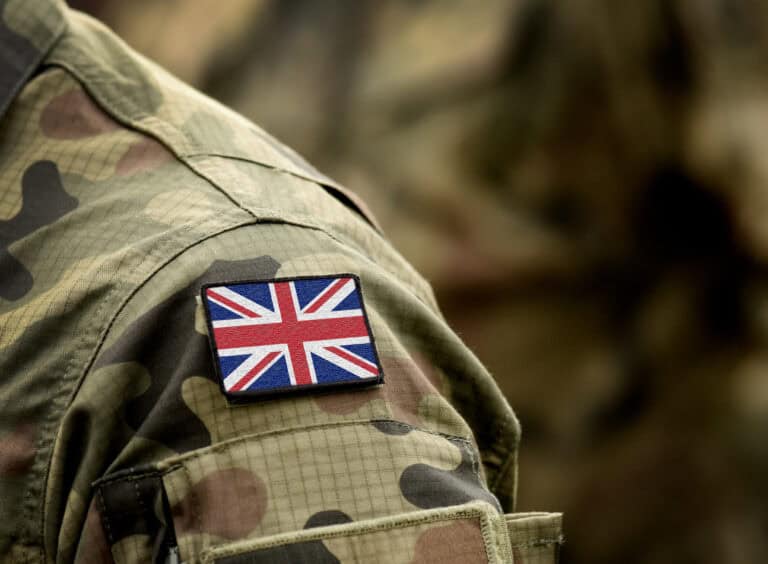Worrying results from the latest Army Sexual Harassment Report
A recent report on sexual harassment in the British Army has revealed that “sexualised behaviours” remain common.
“Sexualised behaviours” include, for example:
- sending sexually explicit material;
- unwelcome gestures of a sexual nature;
- unwelcome attempts to establish a sexual or romantic relationship despite discouragement;
- treating someone badly for refusing to have sex with them;
- attempting to sexually assault someone; and
- intentionally touching someone in a sexual way without their consent
The Army Sexual Harassment Report 2018, based on over 4,700 surveys, followed on from the Army’s 2015 Sexual Harassment Survey and took place against the background of the global “#metoo” and “Time’s up” campaigns against sexual harassment, assault or abuse.
It confirms that:
- Almost nine out of 10 service personnel reported being told sexual jokes and stories, sometimes or a lot, in the previous 12 months
- Being sent sexually explicit materials is now the most commonly experienced behaviour amongst junior ranking service personnel, along with unwelcome comments
- Junior ranking female personnel were most likely to experience unwanted targeted sexualised behaviours. In most cases, men were solely responsible and they were most likely to occur in the workplace, at a service personnel’s home base or training unit
- 8% of Servicemen and 21% of Servicewomen had either experienced or observed sexual harassment at work in the last 12 months
- The most common reason for not reporting issues to someone at work was not wanting to make it into a bigger issue and thinking it would make their work situation unpleasant
- More formal, written complaints are being made than in 2015 but three quarters of those who made a formal complaint said that they had suffered negative consequences as a result; including feeling uncomfortable at work, losing respect for the people involved or feeling humiliated
- A fifth of Service personnel thought it very likely that someone making a complaint about sexual harassment would be labelled a troublemaker by unit personnel
Although the report indicates there is a greater awareness and understanding of what counts as sexual harassment, more needs to be done to tackle this issue.
When asked in the survey why sexual harassment happens in the Army, the most common factors were the unequal ratio of men to women, the rank structure and old fashioned attitudes held by some personnel. Exercises and deployments were also given as situations where sexual harassment may be more likely to occur due to being away from family and friends for a long period.
It is clear that a cultural change is required whereby all personnel, regardless of their gender, are treated fairly. More also needs to be done to breakdown significant barriers for those wishing to speak out about sexual harassment – the most significant of which is the perceived stigma of making a complaint.
The report recognises that sexual harassment can have wide reaching implications not only on the individual’s mental and physical well being, but on team cohesion and the Army as a whole, not least its reputation.
All employers are expected to provide a safe and fair environment and the Army is no exception. To this end, the report has made a number of recommendations.
Recommendations contained in the 2018 Report
- Better training on sexual harassment
- A review of the existing sexual harassment policies
- A web-based anonymous reporting tool so reports can be made without fear of repercussion
- Better support for Service personnel who form a minority cohort within a unit
- A review of social media in the workplace
- Looking at the role leaders play in creating a culture that prevents sexual harassment and how reported incidences are dealt with
- A review of reporting processes to ensure a consistent approach is used
The stated vision is for an Army as “a demonstrably inclusive employer where there is no place for sexual harassment”. How much is achieved before the next survey in 2021 will be a reflection of how seriously the Army is committed to making this vision a reality. As the report writers themselves conclude, the situation must change and just one occasion of sexual harassment is one too many.
Bolt Burdon Kemp’s latest campaign, Lost Heroines, addresses the heroic achievements of armed forces women, sexual harassment in the military, the inequality female Service personnel continue to face and the workplace threats they have had to overcome.
I am a Senior Solicitor at Bolt Burdon Kemp specialising in Military claims. If you think you may have a claim, contact me free of charge and in confidence on 020 7288 4876 or at kateroos@boltburdonkemp.co.uk for specialist legal advice. Alternatively, you can complete this form and one of the solicitors in the Military team will contact you. You can find out more about the team here.









